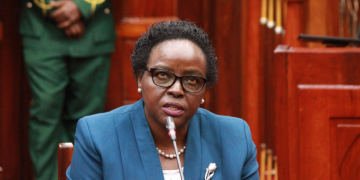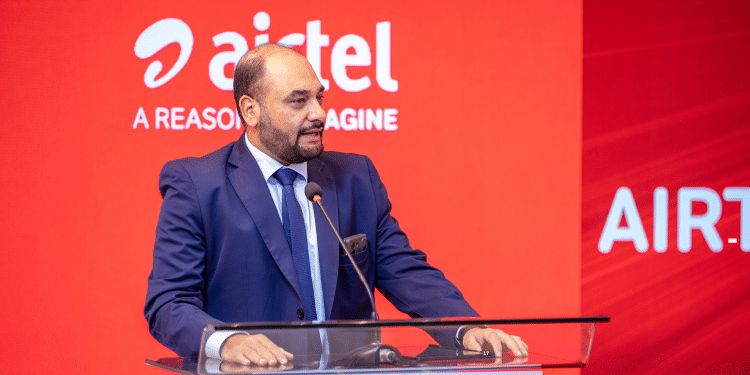National Treasury Cabinet Secretary John Mbadi has unveiled plans to introduce new tax measures and amendments days after the Finance Act was declared constitutional.
In an explainer published by the CS on Friday, November 1, the government outlined three proposed amendment bills aimed at adjusting tax rates and providing some relief to employed Kenyans.
The three proposed bills are the tax laws (amendment) bill, 2024, tax procedures (amendment) bill, 2024 and the public finance (amendment) bills.
The proposal seeks to amend the Income Tax Act & widen the definition of the Digital Market Place to rope in food delivery services, ride-hailing services, and freelance services.

Mbadi Explains Proposals in Income Tax Act
The Bill also proposes to introduce a new tax named Significant Economic Presence tax.
This tax will be payable by non-resident persons whose income from the provisions of services is derived from or accrues in Kenya through a business carried out over the digital marketplace.
The proposed amendment is intended to replace the Digital Service Tax with Significant Economic Presence to provide for taxation at the effective rate of 6% as opposed to 1.5% under Digital Service Tax.
Also Read: Govt Targets Mobile Phones in New Tax Crackdown
Deduction Allowed in Ascertainment of Income
The Bill proposes to amend the Income Tax Act to allow three specific amounts as deductions in the computation of taxable income for individuals.
These include contributions to the Social Health Insurance Fund (SHIF), affordable housing, and contributions to a post-retirement medical fund, capped at Ksh 15,000.
Additionally, the proposal to introduce a Minimum Top-Up Tax to the Income Tax Act is back on the table.
This tax stipulates that multinational companies will be required to pay a minimum effective tax rate of 15.0%, as outlined in the Finance Bill 2024.
Also to note, the VAT apportionment formula has been revised as proposed in the Finance Bill 2024, with the previous 90 percent of zero-rated supply ratio being eliminated.
Exercise Duty Act
Services offered in Kenya by a non-resident through a digital platform shall be subject to exercise duty and it shall be paid by the non-resident.
However, spirits made from sorghum, millet, cassava or any other agricultural products (excluding barley) grown in Kenya will not be liable to exercise duty to support farmers that grow this produce.
Rates of Exercise Duty
The bill will increase the rate of excise duty for imported sugar confectionary to Ksh 85.82 per kg.
It will also restructure in the rate of excise duty for wines including fortified wines, and other alcoholic beverages obtained by fermentation of fruits from Ksh243.43 per liter to Ksh22.50 per centiliter of pure alcohol.
Additionally, it will restructure taxation of alcoholic beverages by reviewing the excise duty rate from Ksh142.44 per liter to Ksh22.50 per centiliter of pure alcohol for Beer, Cider, Perry, Mead, Opaque beer and mixtures of fermented beverages with non- alcoholic beverages and spirituous beverages of alcoholic strength not exceeding 6%.
It also proposes imposition of excise on electric transformers and parts at 25%, imported ink at 15% and imported ceramic sinks, and washbasins at 35%.
Also Read: Supreme Court Delivers Ruling on Finance Act 2023
Treasury has also proposed to revise the excise duty on excisable services such as: telephone and internet data services at 20%, and betting, gaming, price competitions and lotteries at 15%.
The payment period for excise duty relating to alcoholic beverages has been increased from 24 hours to fifth day of the following month.
Miscellaneous Fees and Levies Act
The 2023/24 Tax Amnesty Programme will be extended to June 2025 to allow more taxpayers to fulfil their tax obligations without suffering interests and penalties.
CS Mbadi stated that under the Miscellaneous Fees and Levies Act, the Railway Development Levy will increase from 1.5% to 2.5%.
The amendment to the Tax Procedures Act, which mandates that Kenyans working remotely outside the country must obtain a KRA PIN, is being reintroduced.
The introduction of Withholding Tax on goods supplied to public entities has been introduced as proposed in Finance Bill 2024.
When a withholding tax agent fails to remit tax, he/she will pay a penalty of 10% of the amount not withheld or remitted.
Furthermore, the act also provides that a taxpayer who has overpaid a tax may apply to the commissioner to offset the overpaid tax against the taxpayer’s debt of for refund of the overpaid tax.
The repeal of the Digital Services Tax in favor of the Significant Economic Presence Tax has been reintroduced.
Follow our WhatsApp Channel and join our WhatsApp Group for real-time news updates.








































































